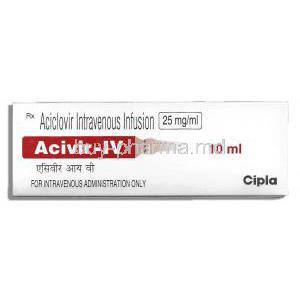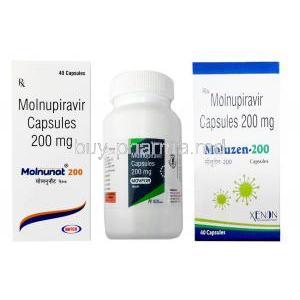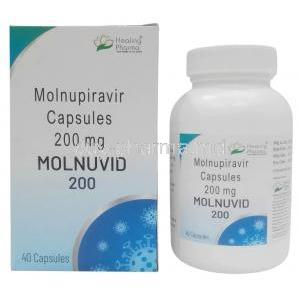Acyclovir Intravenous Infusion
- Introduction to Acyclovir Intravenous Infusion
- Uses of Acyclovir Intravenous Infusion
- Acyclovir mechanism of action
- Acyclovir iv administration
- Composition and Formulation of Acyclovir Intravenous Infusion
- Storage and Handling Precautions
- Potential Side Effects of Acyclovir Intravenous Infusion
- Common Side Effects of Acyclovir Intravenous Infusion
- Acyclovir interactions
- Warnings and Contraindications for Acyclovir Intravenous Infusion
- Special Considerations for Careful Administration
- Important Precautions Before and During Acyclovir Intravenous Infusion
- Administration of Acyclovir Intravenous Infusion to Special Populations
- Overdosage of Acyclovir Intravenous Infusion
- Handling Precautions for Healthcare Professionals
Introduction to Acyclovir Intravenous Infusion
Acyclovir is a drug commonly used to treat serious viral infections. It focuses on combating herpes viruses like Herpes Simplex Virus (HSV) and Varicella Zoster Virus (VA). This medication works by inhibiting DNA synthesis while protecting healthy cells to reduce unwanted cellular harm and boost its effectiveness.
Importance of Intravenous Acyclovir in Severe Infections
Intravenous (IV) administration of Acyclovir is critical in managing severe infections where rapid therapeutic action is essential. In cases of herpes encephalitis, neonatal HSV, and serious VZV infections, IV infusion provides higher, more controlled concentrations, leading to effective virus suppression, especially in immunocompromised patients.
Brief History and Approval for Medical Use
In the 1980s, when Acyclovir was given the green light for use in the treatment of viral infections, it changed the game in how we approach antiviral therapy, especially for severe cases that require IV administration, which is commonly seen in hospitals and intensive care units.
Target Audience for This Guide: Patients, Healthcare Providers, and Caregivers
This manual is designed for individuals receiving treatment medication called Acyclovir and for healthcare professionals and caregivers involved in patient care support roles. It is important to grasp how to use it discuss its impacts and take precautions to ensure thoughtful decision making and comply with safe administration guidelines.
Uses of Acyclovir Intravenous Infusion
Approved Medical Uses of Acyclovir IV
Acyclovir IV is approved for managing several critical infections where standard treatment proves inadequate.
- Treatment of Severe Herpes Simplex Virus (HSV) Infections: IV Acyclovir treats complex HSV cases, including widespread infections and herpes encephalitis.
- Use in Herpes Encephalitis and Disseminated Neonatal HSV Infection: Acyclovir IV is essential for newborns and immunocompromised individuals and can prevent severe neurological damage.
- Management of Varicella-Zoster Virus (VZV) Infections: Acyclovir IV efficiently treats shingles and disseminated VZV infections, particularly in immunocompromised patients.
Off-Label Uses of Acyclovir IV
Though unapproved, Acyclovir IV is sometimes used off-label for additional infections in clinical settings.
- Epstein-Barr Virus (EBV) Infections: In cases of severe EBV symptoms, Acyclovir IV can offer relief, though further studies are needed.
- Cytomegalovirus (CMV) Management in Immunocompromised Patients: Used occasionally when other options are ineffective.
- Treatment of Other Viral Infections: Scope is limited; Acyclovir's efficacy varies with viral species.
Acyclovir mechanism of action
Mechanism of Action of Acyclovir on Viral DNA Replication
Acyclovir works by blocking the activity of DNA polymerase, an enzyme involved in the viral replication process. Upon activation, DNA polymerase becomes part of the DNA. Acyclovir stops its replication to prevent the spread of infection effectively.

Pharmacokinetics and Distribution in the Body
After being administered into the body system, Acyclovir spreads extensively throughout tissues, reaching levels in areas affected by infection. Its effectiveness is enhanced when administered intravenously, which is particularly crucial in cases of infections that demand action.
Factors Influencing Drug Efficacy and Absorption
The effectiveness of the treatment can differ depending on the patient's kidney function and the timing of dosage administration for the types of infections that they have contracted. In patients with compromised health conditions, the rate at which medications are cleared from their system is directly affected, thus requiring modifications to be made accordingly.
Acyclovir half-life
In adults, the time it takes for acyclovir to reduce ranges from 2 to 3 hours. Meanwhile, in newborns, it takes around 3 to 4 hours for the reduction to occur.
Acyclovir iv administration
Standard Dosage Recommendations for Adults
The recommended dose for adults usually varies between 5 and 10 mg per kilogram every 8 hours, depending on the seriousness and site of the infection.
Dosage for HSV, VZV, and Severe Infections
When dealing with herpes encephalitis treatment necessitates dosages compared to VSV infections that usually call for levels of medication adjustments depending upon the patients kidney function and overall health status.
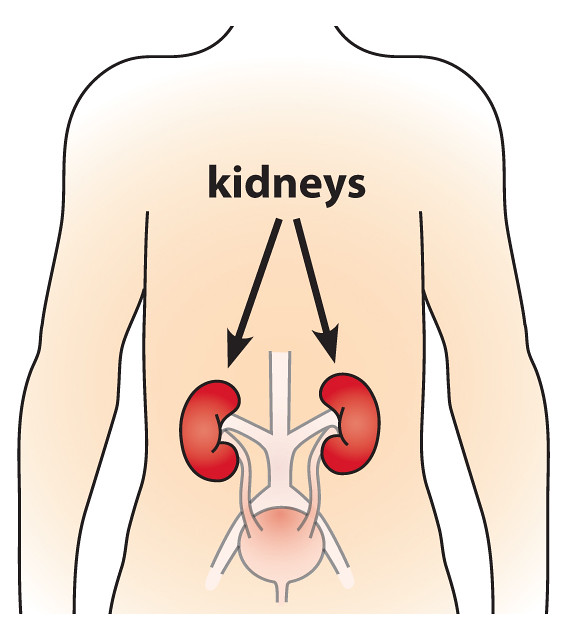
Dosage Adjustments for Renal Impairment
Patients, with declining kidney function may need changes in their medication dosage levels. It is essential to watch their renal function to prevent any harmful effects, from occurring.
Dosage for Special Populations: Pediatric, Elderly, and Immunocompromised Patients
Kids and older patients usually need doses because of how their bodies process medication whereas people, with weakened immune systems might require treatment, for a longer duration.
Duration of Therapy for Different Conditions
Therapy duration varies, with typical courses lasting 7-14 days depending on infection type and response.
Method of Administration and Infusion Guidelines
Administering Acyclovir should be done gradually over the course of an hour to prevent any kidney issues. Its crucial to check for compatibility, with any other medications before combining them.
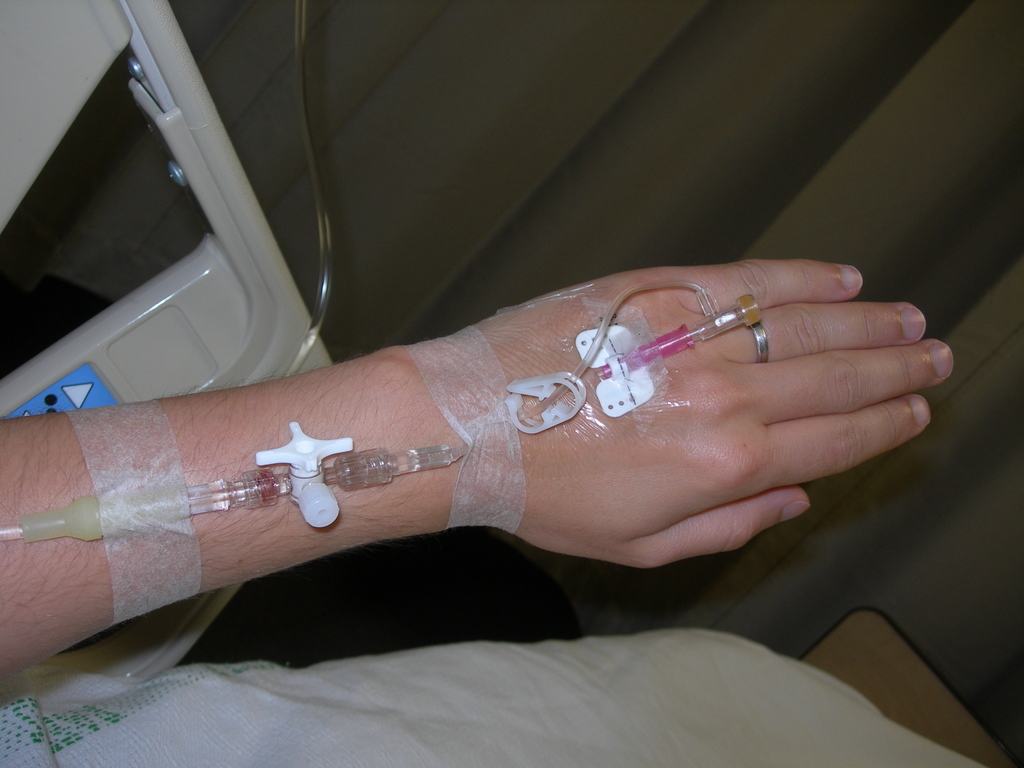
Composition and Formulation of Acyclovir Intravenous Infusion
Active and Inactive Ingredients
Acyclovir IV includes Acyclovir as a component. It is usually mixed with sterile water for injection in different formulations depending on the brand used.
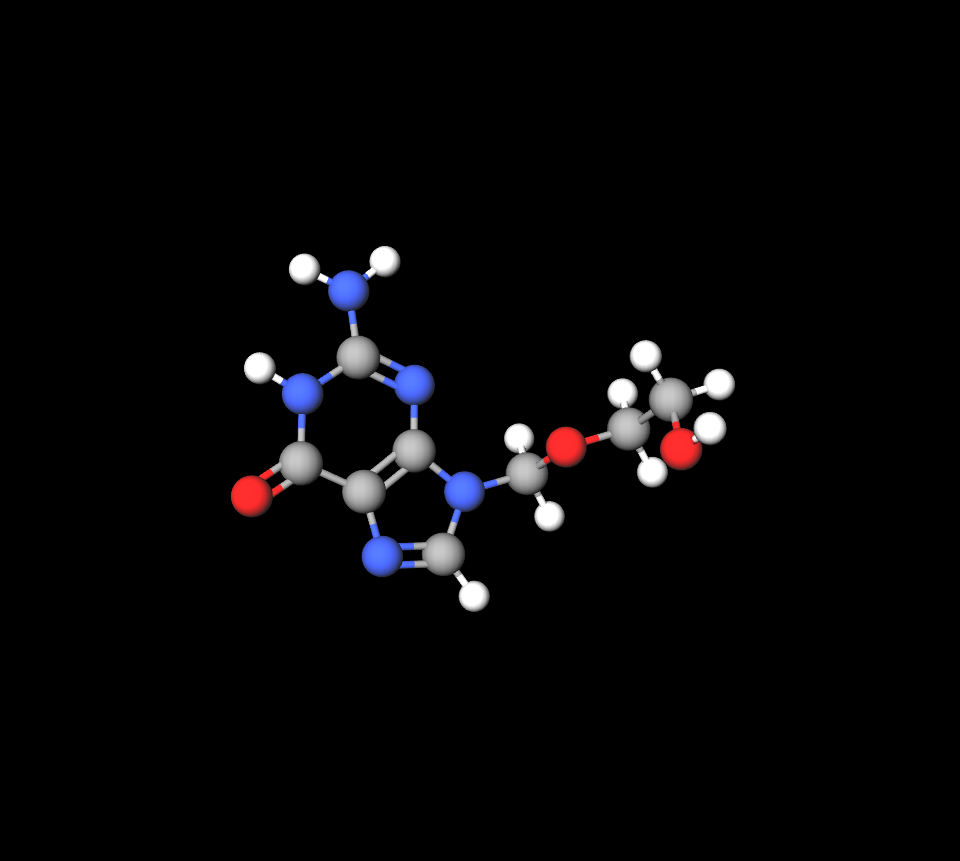
Available Concentrations and Preparation for Use
Dilute it according to the instructions to avoid irritation and ensure absorption, as it becomes stronger.
Formulation Considerations and Compatibility with Other Medications
It's important to consider how certain medications interact with each other when it comes to mixing drugs for an infusion.
Topical acyclovir
Acyclovir cream is applied to manage the signs of skin and genital infections caused by the herpes simplex virus.
Acyclovir and ibuprofen
Taking ibuprofen can enhance the impact of acyclovir as both drugs compete for clearance due to their acidic nature.
Valacyclovir vs acyclovir
Valacyclovir and the other drug both aim at fighting viruses; however valacyclovir stands out for its extended effectiveness which allows for frequent daily dosing. Making it the primary benefit worth noting.
Docosanol vs acyclovir
Acyclovir is effective for treating ailments such as sores, genital herpes, shingles, and chickenpox, while Docosanol is commonly used to address cold sores or fever blisters found on the face or lips.
Famciclovir vs acyclovir
In immunocompromised patients, both Famciclovir and acyclovir work well in treating genital herpes infections, while Famvir may offer better pain relief and quicker healing for shingles than Zovirax.
Mupirocin vs acyclovir
Mupirocin is a type of antibiotic that helps stop the growth of bacteria on the skin and is commonly prescribed for treating skin infections like impetigo. Acyclovir is a medication specifically designed to combat infections caused by viruses such as shingles, chickenpox, and herpes simplex virus.
Storage and Handling Precautions
Proper Storage Conditions for Stability
Please keep in a place, out of sunlight and refrain from freezing as it may affect the products stability.
Guidelines for Handling and Disposal of Acyclovir IV
Remember to adhere to procedures for disposing of medical waste to prevent any risk of contamination due to mishandling.
Safe Practices for Healthcare Providers
Healthcare professionals should wear gloves and protective clothing to avoid contact situations.
Potential Side Effects of Acyclovir Intravenous Infusion
Overview of Common Side Effects
Acyclovir administered intravenously can be effective. It may lead to a range of side effects that can vary in intensity from mild to severe.
Gastrointestinal Disturbances (Nausea, Vomiting)
Some individuals may experience nausea or vomiting. These can usually be relieved with nausea medications.
Injection Site Reactions and Pain
Infusion might lead to irritation or inflammation in the area where the injection is administered and may require observation.
Serious Side Effects and Potential Risks
- Renal Toxicity and Renal Failure: Occurs primarily in patients with pre-existing renal impairment.
- Neurotoxicity: Symptoms include confusion, tremors, and hallucinations in rare cases.
Managing and Reporting Side Effects
Report severe side effects promptly to healthcare providers for immediate management and potential dosage adjustments.
Valacyclovir vs acyclovir side effects
Similar side effects of Valacyclovir and Zovirax include headaches, nausea, vomiting, bowel issues, and rashes. On the other hand, Different side effects of Valtrex compared to Zovirax encompass discomfort, chills making the liver work harder, lack of white blood cells, pain in the joints, and feeling dizzy.

Common Side Effects of Acyclovir Intravenous Infusion
List of Frequently Observed Side Effects in Patients
Mild Rash, Fever, and Headache
While generally mild, these symptoms may sometimes require temporary treatment discontinuation.
Localized Phlebitis at Injection Site
Phlebitis is a common occurrence, minimized by rotating injection sites and infusing slowly.
Recommendations for Managing Mild Side Effects
Most of the outcomes can be handled with measures, such, as staying hydrated and keeping a close eye to reduce any discomfort or inconvenience that may arise.

Acyclovir interactions
Overview of Significant Drug Interactions
When administering Acyclovir through an IV infusion system, in healthcare settings or hospitals it is important to be aware of drug interactions that could affect its effectiveness and patient well-being significantly It is particularly vital to have this knowledge when dealing with cases that involve the use of multiple medications simultaneously.
Interaction with Nephrotoxic Agents (e.g., Amphotericin B, Aminoglycosides)
When Amphotericin B and Aminoglycosides are used together with Acyclovir, increasing the chances of toxicity should be closely watched to prevent kidney damage from worsening due to acyclovir's renal impact.
Concomitant Use with Probenecid and Impact on Clearance
Probenecid is a drug commonly used for treating gout that impacts how Acyclovir is cleared by the kidneys. This leads to a duration of drug effects and higher levels of the medication in the bloodstream, necessitating dosage modifications to prevent harmful side effects.
Recommendations for Healthcare Providers on Managing Interactions
Healthcare providers should:
- Review the patient's medication history thoroughly.
- Monitor renal function regularly when Acyclovir is used with nephrotoxic agents.
- Adjust the Acyclovir dosage if it is used with Probenecid to prevent excessive accumulation.
Warnings and Contraindications for Acyclovir Intravenous Infusion
Contraindications: Conditions Where Acyclovir IV is Not Recommended
Patients who have known allergies to Acyclovir or valacyclovir should not receive Acyclovir IV treatment due to reactions.In addition, caution is advised for individuals with kidney issues or a past history of allergic responses when considering this medication.
Important Warnings for Specific Health Conditions
People with health issues need to be especially careful.
Renal Impairment and Nephrotoxicity Risk
Acyclovir may lead to kidney damage, in individuals with existing kidney issues due to its elimination, through the kidneys; hence it is recommended to monitor function to reduce the risk of nephrotoxicity.
Neurological Conditions: Risk of CNS Effects
Patients with a history of neurological conditions may experience CNS side effects, such as confusion, hallucinations, and seizures. Dosage adjustments may be necessary to prevent these complications.
Precautionary Measures for Patients with Allergies to Acyclovir
Acyclovir and alcohol
Special Considerations for Careful Administration
Recommended Monitoring During Infusion
Adjusting Infusion Rate Based on Patient Response
Steps for Preventing Renal Complications
Acyclovir nursing considerations
Before giving this medication to the patient, inform them about the chance of experiencing headaches as a side effect. Aciclovir has an absorption rate, and it is slowly taken in by the gastrointestinal tract. This drug could lead to issues like nausea, vomiting, or diarrhea symptoms.
Important Precautions Before and During Acyclovir Intravenous Infusion
Pre-Infusion Assessments for Safe Administration
Before starting the administration of Acyclovir (IV) it is important to conduct an evaluation that includes assessing kidney function and neurological status to reduce the risk of complications during treatment.
Monitoring Renal Function Throughout Treatment
Regular monitoring of kidney function is important to catch any indications of harm to the kidneys prompting changes, in medication dosage or infusion speed depending upon the lab findings.
Considerations for Immunocompromised Patients
Individuals, with weakened systems might need increased amounts of Acyclovir medication due, to their conditions impact but should be mindful of potential side effects that could arise and require more vigilant monitoring and precise dosage control.
Administration of Acyclovir Intravenous Infusion to Special Populations
Administration in Elderly Patients
Older patients commonly need doses because their kidneys function effectively at clearing medication, from their bodies than younger individuals do; moreover they might encounter central nervous system side effects more often which calls for careful dosing practices.

Adjustments in Dosage and Monitoring Requirements
For elderly and pediatric patients, as well as those with renal impairment, the Acyclovir dosage should be adjusted based on individual renal function and body weight.
Administration to Pregnant Women and Nursing Mothers
Safety Considerations in Pregnancy (FDA Category B)
Although classified as FDA Category B, meaning no demonstrated risk to the fetus in animal studies, Acyclovir should still be used with caution during pregnancy.
Acyclovir in Breast Milk: Risks and Recommendations
Acyclovir is present in breast milk in low concentrations. Nursing mothers should weigh the benefits and risks of therapy, considering potential effects on the infant.
Pediatric Administration
Pediatric patients can receive Acyclovir with dosage adjustments based on age and body weight.
Appropriate Dosage for Children and Infants
Dosages are generally lower for children and infants, calculated precisely according to weight and renal function.
Safety Profile and Common Pediatric Side Effects
While effective, pediatric patients may experience side effects such as mild rash, nausea, and transient renal effects. Close monitoring is essential to ensure safety.
Overdosage of Acyclovir Intravenous Infusion
Symptoms and Signs of Overdosage
Taking much of a substance can result in kidney problems and issues, with the system such as feeling sick and throwing up. In situations it might cause kidney damage and affect the brain causing things, like seeing or hearing things that aren’t real and experiencing seizures.
Immediate Actions and Treatment Protocols
If an overdose occurs:
- Discontinue Acyclovir immediately.
- Initiate supportive measures such as hydration.
- Consider hemodialysis if renal failure is suspected, as it can help remove excess Acyclovir.
Role of Dialysis in Severe Cases of Overdose
Dialysis effectively removes Acyclovir in cases of overdose, particularly in patients with impaired renal function who cannot clear the drug efficiently.
Handling Precautions for Healthcare Professionals
Safety Protocols for Preparing and Administering Acyclovir IV
Healthcare workers must follow safety guidelines when preparing and giving treatments to prevent contamination by handling them.
Preventing Cross-Contamination and Exposure
To avoid mixing substances by mistake use tools for administering Acyclovir intravenously and thoroughly follow strict cleaning protocols.
Personal Protective Equipment (PPE) Recommendations
Healthcare workers need to wear equipment like gloves and eye protection while dealing with Acyclovir IV to reduce the chances of exposure.
Acyclovir foods to avoid
Stick to meals. Avoid indulging in heavy or spicy dishes. Make sure to take your medication after having your meal. If you feel nauseous take sips of water regularly to prevent dehydration.Symptoms of dehydration include reduced urination or colored urine, with odor.
Acyclovir Intravenous Infusion FAQ
- Can acyclovir treat yeast infections?
- Can acyclovir cause nausea?
- Can acyclovir cause diarrhea?
- Can acyclovir be crushed?
- Can acyclovir cause yeast infections?
- Are valtrex and acyclovir the same thing?
- What are acyclovir tablets 400mg used for?
- What are acyclovir tablets used for?
- Are acyclovir antibiotic?
- Are acyclovir and famciclovir the same thing?
- Are acyclovir and valacyclovir the same?
- Will acyclovir help with shingles?
- Will acyclovir help a uti?
- Will acyclovir help with covid?
- Will acyclovir help with a cold sore?
- Why acyclovir for multiple myeloma?
- Why acyclovir has low bioavailability?
- Which is better acyclovir or valacyclovir?
- Which is better acyclovir or abreva?
- Which is better acyclovir or famciclovir?
- Acyclovir when to give?
- Acyclovir when breastfeeding?
- Acyclovir when pregnant?
- When acyclovir stops working?
- When acyclovir doesn't work?
- What acyclovir topical?
- What acyclovir treat?
- What acyclovir does?
- What acyclovir good for?
- What acyclovir used for?
- Acyclovir how long does it take to work?
- How acyclovir works in chickenpox?
- How acyclovir works in shingles?
Can acyclovir treat yeast infections?
Acyclovir is recommended for treating conditions such as Chickenpox and Shingles in individuals of all ages, including children and adults.
Can acyclovir cause nausea?
Taking acyclovir for a period may lead to experiencing nausea and episodes of vomiting as side effects.
Can acyclovir cause diarrhea?
Cited adverse reactions to acyclovir include experiencing nausea, vomiting, and bouts of diarrhea.
Can acyclovir be crushed?
Do not crush.
Can acyclovir cause yeast infections?
Aciclovir is not adequate for treating or alleviating the symptoms of thrush.
Are valtrex and acyclovir the same thing?
Valtrex (valacyclovir) and acyclovir (Zovirax) are medications with functions that target the same types of viruses.
What are acyclovir tablets 400mg used for?
Aciclovir tablets are mainly prescribed for treating instances of herpes simplex virus (HSV) which impact the skin and mucous membranes.
What are acyclovir tablets used for?
Acyclovir is commonly recommended for treating symptoms of chickenpox and shingles, as well as herpes virus infections that impact the genital region (sexual organs), skin conditions involving the brain, and mucous membranes such as the lips and mouth area.It is also utilized to address herpes virus infections in children.
Are acyclovir antibiotic?
Acyclovir works against viruses, and not bacteria as antibiotics do.
Are acyclovir and famciclovir the same thing?
Doctors often recommend Acyclovir to treat infections caused by herpes simplex and herpes zoster, while Valacyclovir and Famvir are also options for dealing with these conditions.
Are acyclovir and valacyclovir the same?
Valacyclovir functions as a precursor to acyclovir, transforming into acyclovir within the body upon ingestion. It is absorbed more efficiently than acyclovir and requires frequent intake in comparison.Acyclovir is often selected as a treatment choice due to its affordability and efficacy as a medication.
Will acyclovir help with shingles?
Acyclovir is frequently recommended to help ease the symptoms of chickenpox and shingles and to treat herpes virus infections that impact areas of the body like the genitals ( organs), skin surface area or covering tissue of the body) brain function (intellectual capacity) and mucous membranes such as those found on lips and inside the mouth are employed to manage widespread herpes virus infections in newborn babies.
Will acyclovir help a uti?
Initiating treatment promptly with Aciclovir can greatly reduce the duration of symptoms and decrease the likelihood of experiencing complications such as retention during genital herpes outbreaks.
Will acyclovir help with covid?
Acyclovir has been used in small scale studies to treat COVID–19 because it has shown to be effective and safe while also being affordable.
Will acyclovir help with a cold sore?
Using medications like acyclovir or penciclovir can quicken the recovery of sores by cutting down the duration by one day.
Why acyclovir for multiple myeloma?
The research results suggest that medications such, as acyclovir may aid in stopping the reactivation of the varicella zoster virus in myeloma patients receiving bortezomib treatment provided they follow their medication schedule.
Why acyclovir has low bioavailability?
The efficacy of using acyclovir as a treatment is limited by its absorption capabilities because of its solubility in water and restricted membrane penetration ability.
Which is better acyclovir or valacyclovir?
Valacyclovir (sold under the Valtrex brand name) and acyclovir (known as Zovirax in the market) work by interfering with the reproduction of DNA in the body's cells to combat viruses effectively. Although both medications are efficient against viruses, valacyclovir provides lasting relief, while acyclovir enables frequent dosing during the day.
Which is better acyclovir or abreva?
Acyclovir and Abreva are frequently used medications for treating herpes infections. They have purposes and potential side effects associated with them.
Which is better acyclovir or famciclovir?
The amount of time famiclovir remains active in cells is longer than that of acyclovir when treating infections.
Acyclovir when to give?
When you start experiencing symptoms, you usually need to take the medication, in tablet or capsule form, two to five times a day for five to ten days.
Acyclovir when breastfeeding?
If your healthcare provider gives the light that your baby is healthy during breastfeeding and you need to take aciclovir tablets or liquid medication for any reason. It should be safe to do.
Acyclovir when pregnant?
During pregnancy, aciclovir cream eye ointment or tablets are safe to use. There is no evidence of harm associated with their use.
When acyclovir stops working?
Acyclovir resistance can occur when there are deficiencies or alterations in thymidine kinase and/or DNA polymerase genes within the body system. In cases where HSV strains develop resistance to acyclovir effects, alternative treatments such as foscarnet and intravenous cidofovir are often effective.
When acyclovir doesn't work?
If the condition doesn't improve within 5 to 7 days after starting ACIV at a dose of 800 mg five times a day and the sore doesn't respond well to ACIV (or similar medications such as VCV or famciclovir), then it's unlikely that ACIV will be effective in treating the sore. In these cases, considering an alternative treatment approach is necessary.
What acyclovir topical?
Topical acyclovir is often prescribed to treat the symptoms of infections triggered by the herpes simplex virus, which affect the skin and mucous membranes.
What acyclovir treat?
Acyclovir is commonly prescribed to help alleviate the symptoms of chickenpox and shingles, herpes virus infections that impact different areas of the body, such as the genital region (private parts), skin surfaces like the brain, and mucous membranes such as the lips and mouth area. It's also used to treat severe herpes virus infections in babies.
What acyclovir does?
Acyclovir is often recommended to help reduce discomfort and speed the healing process of sores or blisters in people who have varicella (chickenpox) or herpes zoster (shingles) skin rashes. These rashes can occur in people with chickenpox infection experience and first-time or repeated herpes outbreaks.
What acyclovir good for?
Acyclovir is often recommended for the treatment of herpes virus infections, like herpes and cold sores. Also for conditions such, as shingles and chickenpox.
What acyclovir used for?
It is often used to treat and alleviate herpes infections affecting the skin and mucous membranes such, as shingles (herpes zoster) chickenpox and genital herpes.
Acyclovir how long does it take to work?
Acyclovir usually begins working within 24 to 48 hours after starting the treatment. It may take four to five days for symptoms to improve completely. It's recommended to finish the course of medication to reduce the likelihood of a recurrence.
How acyclovir works in chickenpox?
Acyclovir, commonly known as Zovirax, is a medication that is utilized in the treatment of chickenpox by hindering the multiplication of the varicella zoster virus (VZV).
How acyclovir works in shingles?
When treatment is initiated within 72 hours of the appearance of the lesion, medications such as acyclovir, valacyclovir, or famciclovir have demonstrated efficacy in reducing shedding duration, accelerating skin lesion healing, and lessening pain duration.


